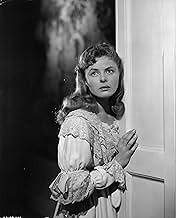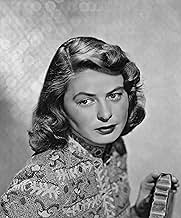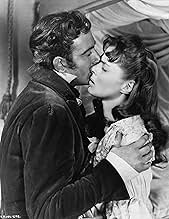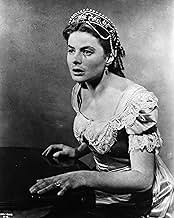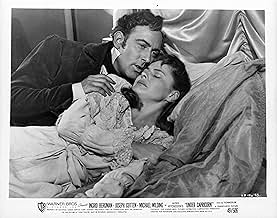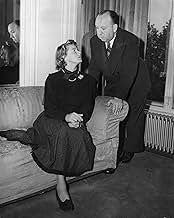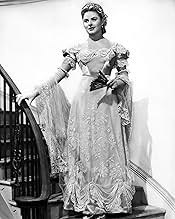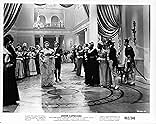Un jeune homme se rend en Australie où il retrouve son amour d'enfance maintenant mariée, mais découvre qu'elle est devenue une alcoolique et cache de sombres secrets.Un jeune homme se rend en Australie où il retrouve son amour d'enfance maintenant mariée, mais découvre qu'elle est devenue une alcoolique et cache de sombres secrets.Un jeune homme se rend en Australie où il retrouve son amour d'enfance maintenant mariée, mais découvre qu'elle est devenue une alcoolique et cache de sombres secrets.
- Récompenses
- 1 victoire au total
- Major Wilkins
- (as Francis de Wolff)
Histoire
Le saviez-vous
- AnecdotesIn 1958, Cahiers du Cinema (French Film Magazine) voted this movie as one of the ten greatest movies of all time.
- GaffesAs the characters gather for the dinner party, fairly early on in the film, the camera tracks backwards across the dining room. The table has been pushed into the path of the camera by the time it comes into view, but the candlesticks are still shaking severely from the jerking appearance of the table (their shaking lessens as the take continues).
- Citations
[last lines]
Winter: We'll be sorry to lose you, sir.
Hon. Charles Adare: If I may say so, Winter, I'm sorry to go. Not a bad place. It is said that there is some future for it, there must be- it's a big country.
Winter: Then why are you leaving, sir?
Hon. Charles Adare: That's just it, Winter. It's not quite big enough. Bye, good luck.
- Crédits fousOpening credits roll up over a map of Australia.
- Versions alternativesThere is an Italian edition of this film on DVD, distributed by DNA Srl: "SOTTO IL CAPRICORNO (Il peccato di Lady Considine, 1949) New Widescreen Edition + FRAGILE VIRTÙ (1927)" (2 Films on a single DVD, with "Under Capricorn" in double version 1.33:1 and 1.78:1), re-edited with the contribution of film historian Riccardo Cusin. This version is also available for streaming on some platforms.
- ConnexionsEdited into Histoire(s) du cinéma: Fatale beauté (1994)
The problems start with the character of Charles Adare (Michael Wilding), a young man who comes to Australia to seek his fortune. He's the type of guy who'd make good comic relief but isn't suited to be the protagonist of a movie: a lazy, cheery, empty-headed aristocrat. Through Charles, we get introduced to some more interesting people: ex-convict Sam Flusky (Joseph Cotten) and his drunken, self-loathing wife Henrietta (Ingrid Bergman). Charles realizes that he knew Henrietta during childhood and tries to rehabilitate her, which causes long-repressed secrets and emotions to come to the surface. But since none of the characters initially engages our sympathySam is brusque, Charles is a lightweight, and Henrietta is a messit's difficult to care about any of this.
Hitchcock experimented with long takes in this movie, most notably an unbroken 8-minute- long monologue where Henrietta finally divulges her guilty secret. In one sense, this is the high point of the movie: a chance to marvel at Bergman's talent as she cycles through her emotional range without the camera ever cutting away. But in another sense, this scene displays everything that's wrong with "Under Capricorn." Henrietta's story is full of exciting passion and violence, but none of that emotion shows up during the rest of the movie. And the performers (including Bergman, Cotten, and Margaret Leighton, who plays a sinister maid) are at their best during their long monologues, not when they interact with one another.
"Under Capricorn" is not a horrible movie, just a dull one, so if you're curious about this anomaly in Hitchcock's catalog, there's no harm in spending two hours watching it. But, certainly, this movie would be forgotten today if anyone else had directed it.
- marissas75
- 6 févr. 2007
- Permalien
Meilleurs choix
Détails
- Durée1 heure 57 minutes
- Couleur
- Rapport de forme
- 1.37 : 1
Contribuer à cette page


